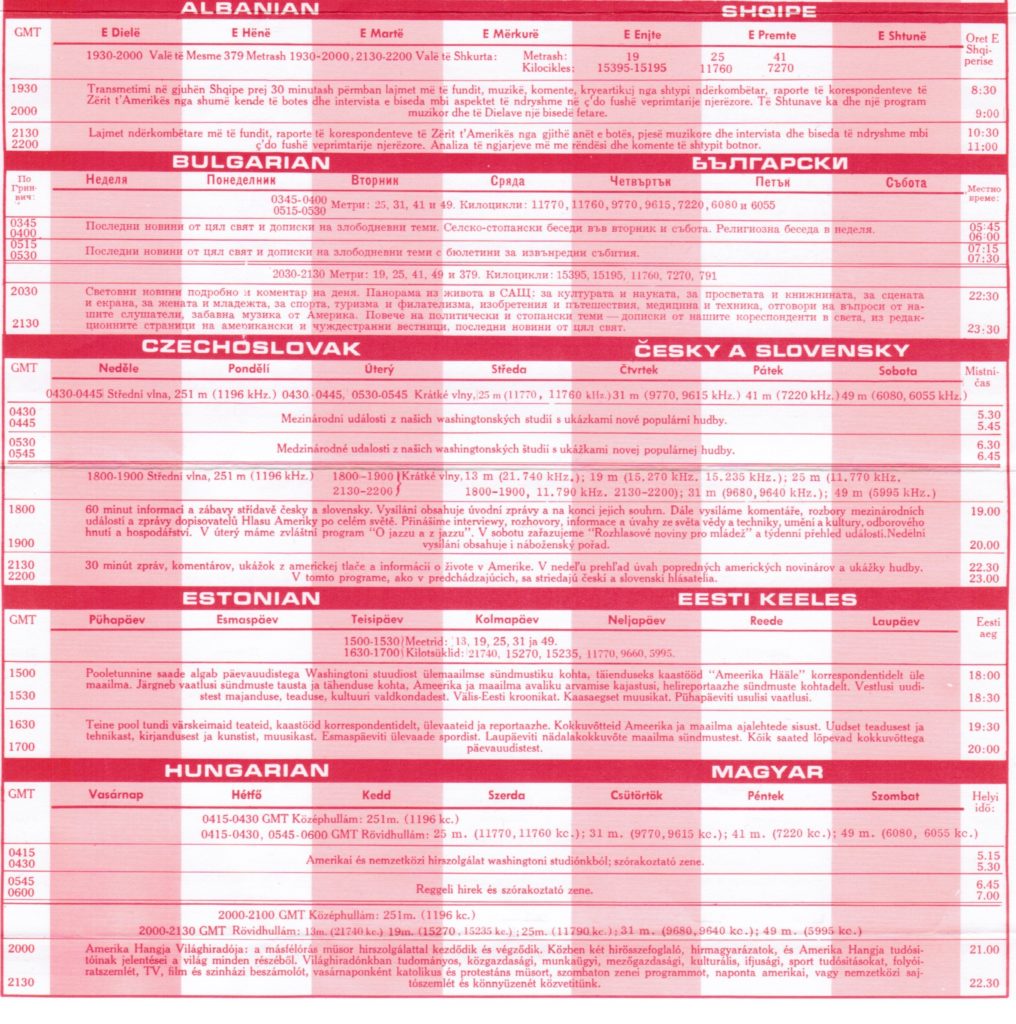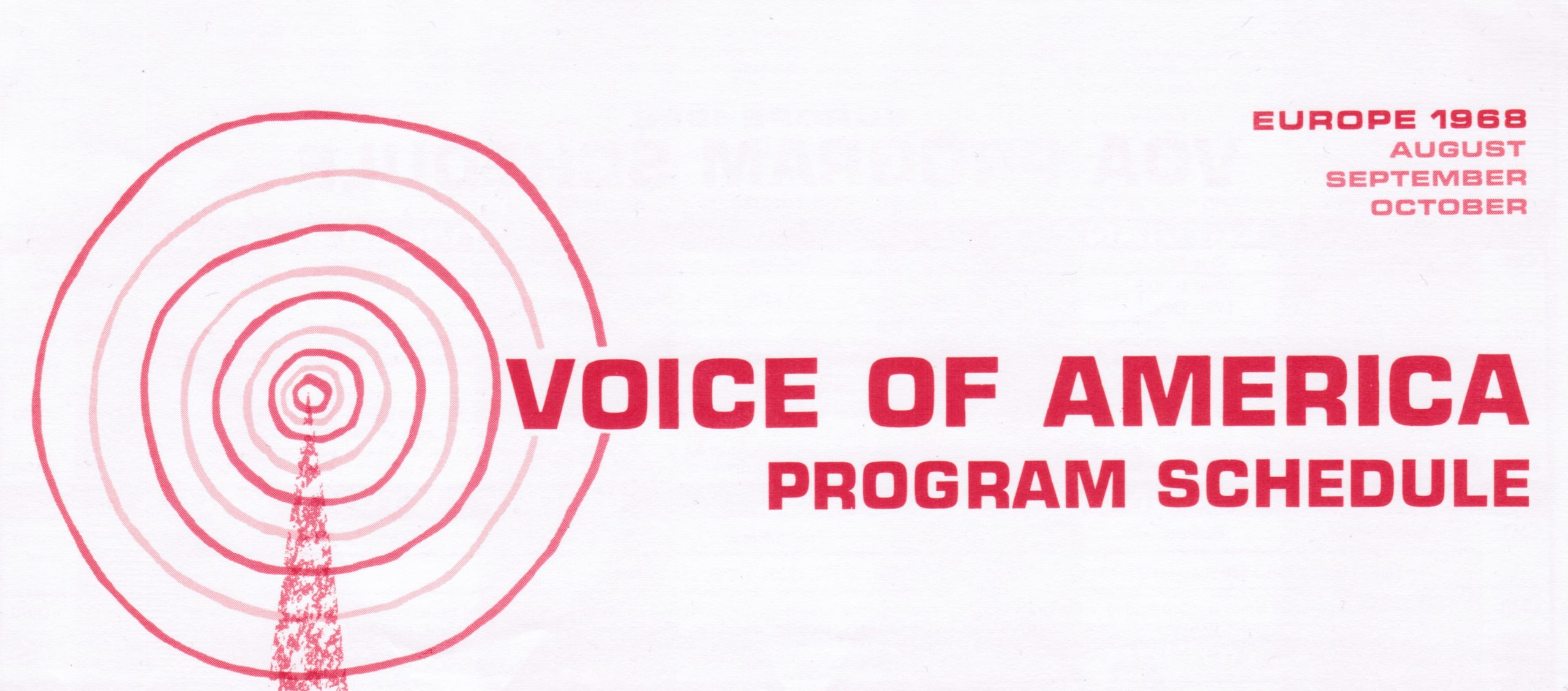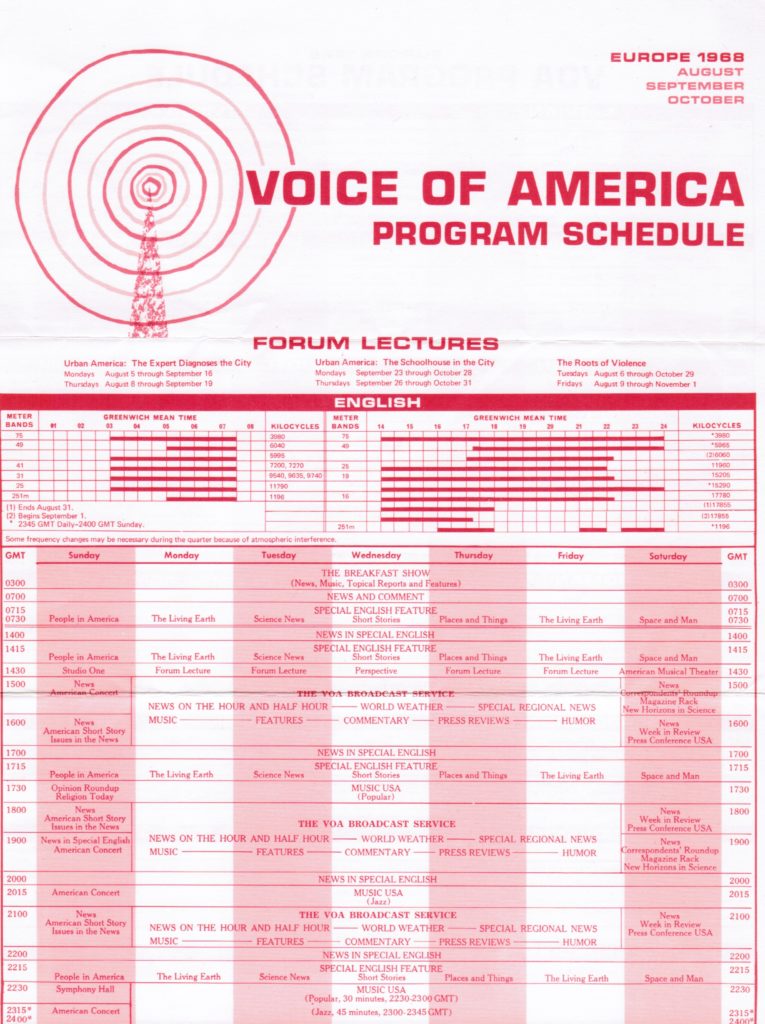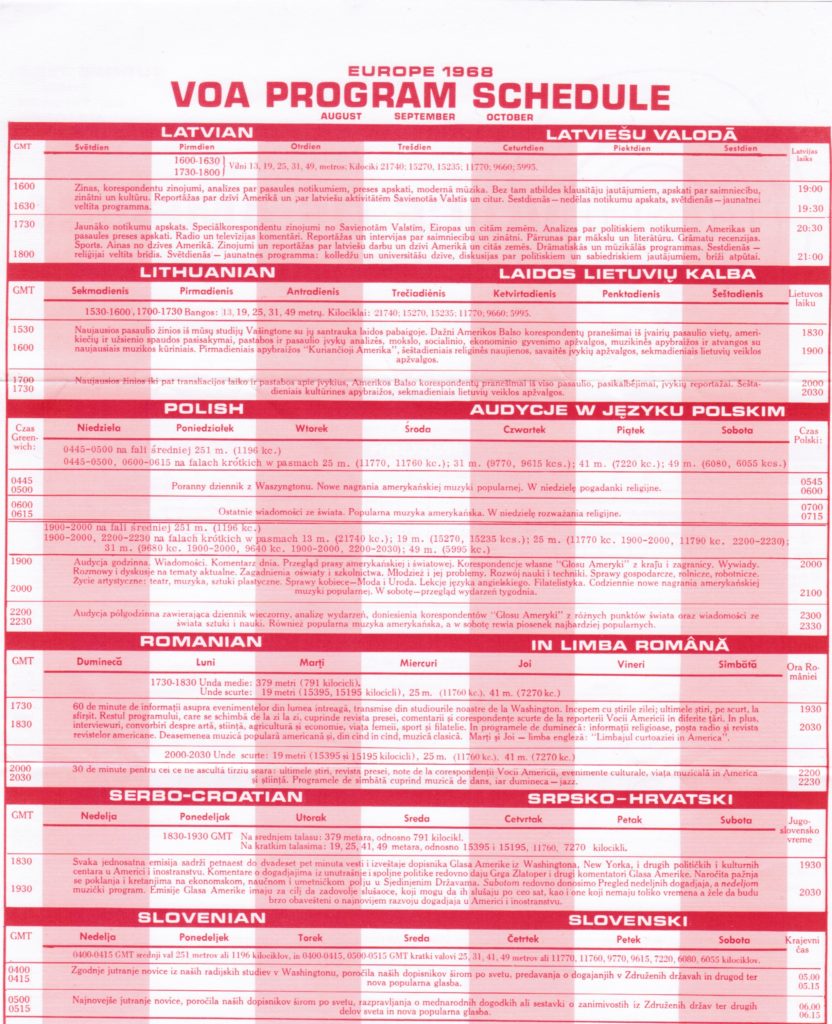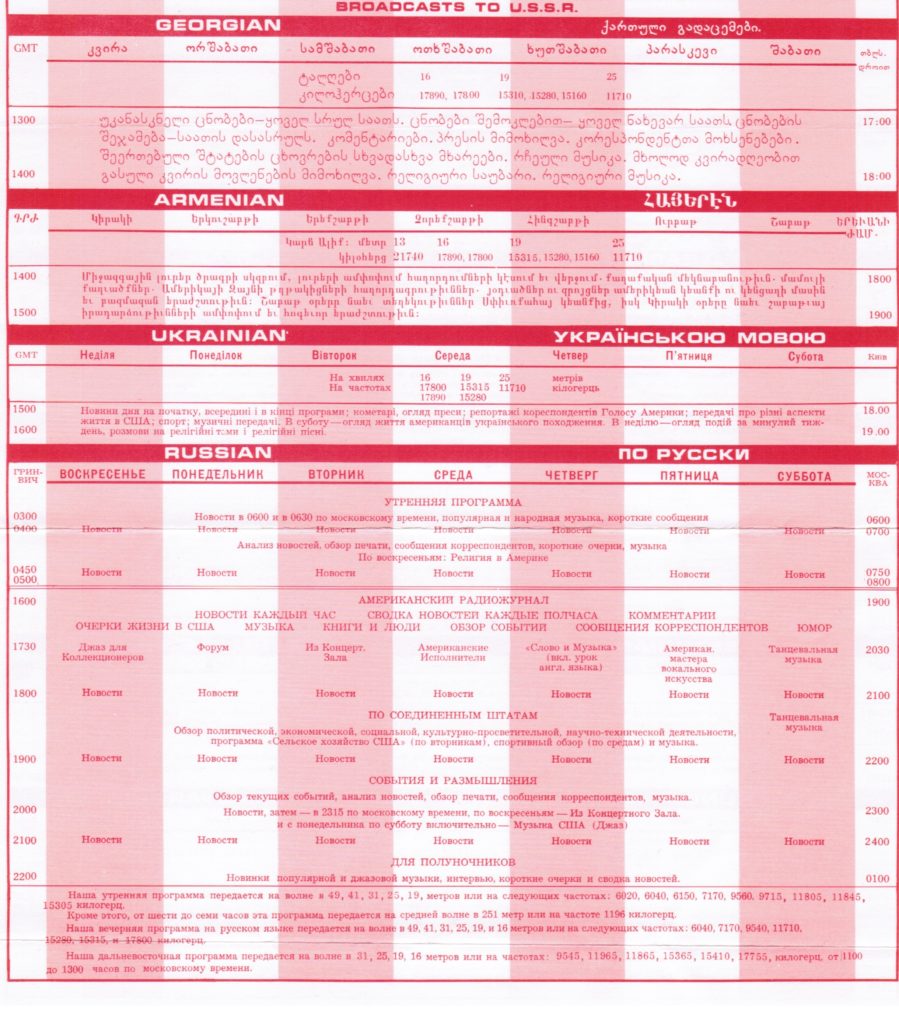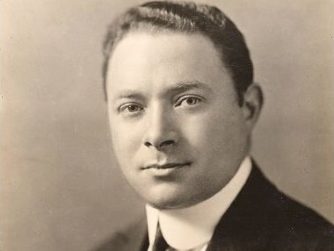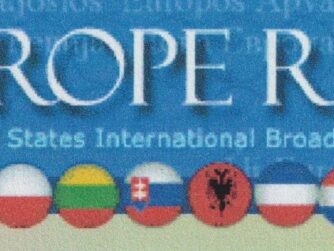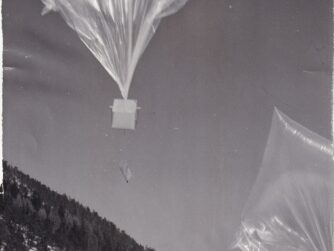Soviet jamming was a sign of the effectiveness of Western radio broadcasts. Radio Free Europe and Radio Liberty were consistently jammed. The Voice of America was jammed only during some periods.
Ted Lipien for Cold War Radio Museum
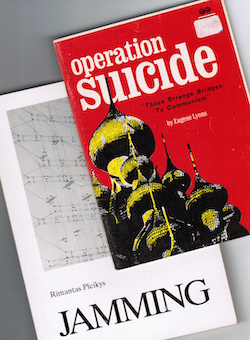
In his book Operation Suicide: “Those Strange Bridges to Communism,” published in 1967, American journalist Eugene Lyons, a former communist sympathizer who interviewed Joseph Stalin but later became an ardent anti-communist, wrote about Western radio broadcasts to the Soviet Bloc:
Broadcasts from abroad, except for the mild, toothless varieties, are jammed. (New York: Twin Circle Publishing Company, 1967), p. 23.
In his book Jamming, Rimantas Pleikys, former Lithuanian Minister for Communications and Informatics (1996–1998), wrote:
The Soviet Union, for the purposes of propaganda, temporarily stopped the jamming of Voice of America, BBC, and Deutsche Welle programs.
During the period from June 19, 1963, until August 1968 when the Soviet invasion of Czechoslovakia began, the Soviets did not jam the Voice of America, BBC, and Deutsche Welle. The USSR again did not interfere with VOA, BBC, and DW broadcasts from 1973 to 1980.
However, Russian-language broadcasts and other former USSR language programs of Radio Liberty were continuously jammed by the Soviets from March 23, 1953 until November 29, 1988. During the Cold War, the Soviet Union also jammed various language programs of Radio Free Europe (RFE), as did during various periods some communist regimes in East-Central Europe.
Jamming was a sign of the effectiveness of these broadcasts.
The true history of the first ten years of the Voice of America is quite different from the official, sugared version promoted by the organization’s leaders and VOA’s public relations specialists. Books written by former VOA officials also present VOA’s history in an entirely different manner from how journalists like Eugene Lyons or members of Congress who had worked and served during those years would have seen it. Lyons had no doubts that some of the early Voice of America officials and employees were pro-Soviet Kremlin and pro-communist “subversives.” However, Lyons was able to write truthfully in Reader’s Digest in 1954 that these “subversives” were no longer employed by VOA:
Without doubt some “subversive” individuals formerly found their way into VOA, as into other agencies in Government. Fortunately the Voice has cleared house. Ardent anti-Communists on the inside are now convinced that no known Communists or Communist sympathizers remain.
Eugene Lyons, “How Good Is The Voice of America,” Reader’s Digest, June 1954.
In 1954, VOA broadcasts to Poland and to the Soviet Union were still jammed. In later years, VOA broadcasts to Poland became softer and did not change until the start of the Reagan administration in 1981. RFE Polish broadcasts remained hard-hitting and had a considerably larger audience in Poland than VOA broadcasts until the 1980s, when VOA Polish Service more than quadrupled its audience reach with changed programming made possible by the Reagan administration.
VOICE OF AMERICA PROGRAM SCHEDULE EUROPE 1968 AUGUST SEPTEMBER OCTOBER
